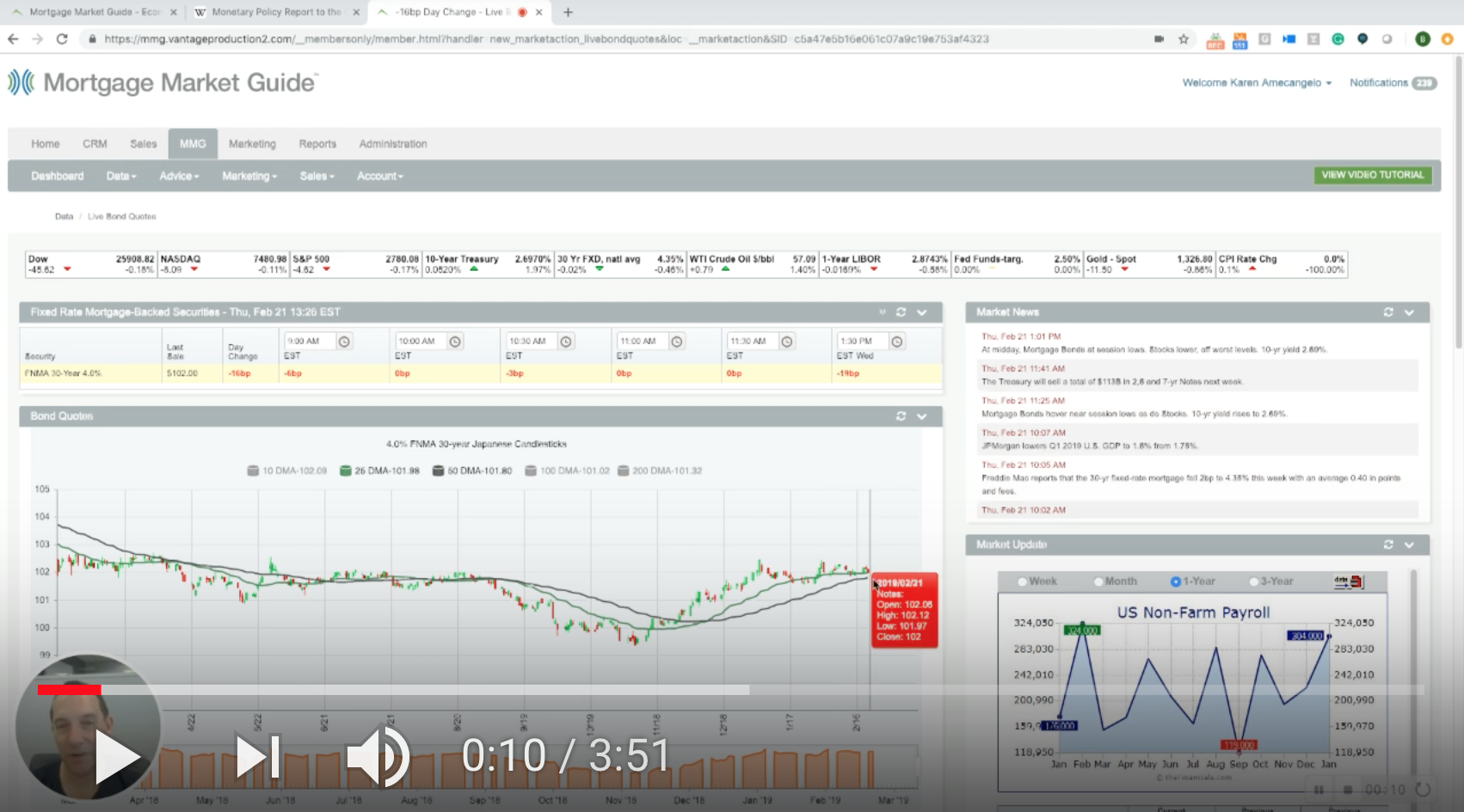OTHER NEWS
The Learning Center
Our Learning Center ensures that every reader has a resource that helps them establish and maintain a competitive advantage, or leadership position. For instance, loan originators and brokers will have one-click access to resources that will help them increase their productivity. Search topics by category and keyword and generate free videos, webinars, white papers and other resources. If you would like to add your content to the learning center, please click here or email Tim Murphy at [email protected].
Expanding Your 'Sphere' Means More Business
- Monday, 25 February 2019
- Originating

By Dave Hershman
Last time, we started the process of defining and identifying one's "sphere." We noted that the sphere should be the basis of a personal marketing plan, and therefore, it is imperative that we have a true understanding of the scope of one's sphere.
Now we will describe four additional parts of your sphere:
Associations. When we described the sphere, we described both a "relationship" and a "commonality" segment. Your associations will produce targets that represent both segments, but this category actually has the ability to add more from the "commonality" segment than any other category. Associations would include religious, academic, business, civic or even special interest associations. Your church or temple, alumni association, chamber of commerce, homeowner’s association and even country club are all examples of these associations.
If you are not a "participator" or "joiner"--your marketing plan may require that you start joining and participating in these associations. An alumni association may have 2,000 members. You might develop a relationship with only 50, but you have something in common with all of them.
Vendors. There are actually two subcategories of vendors. First, there are those from which you purchase. You make both business and personal purchases. Your business vendors may include your landlord, printer, advertiser and so forth. Your personal vendors may include your dry cleaners, favorite restaurant and others. Every time you make a purchase from a vendor, you are helping that vendor succeed. Our question to you: Is that vendor helping you succeed? This brings up an important sphere-marketing rule: Stop buying from vendors that are not helping you succeed.
The second subcategory of vendors would include those that sell to your targets. For example, if you are a real-estate agent, you are not the only one who calls on potential homeowners. If you are a loan officer, you are not the only one who calls on real estate agents. It is from this subcategory that you can find potential synergy marketing partners. Synergy marketing partners are those who have the same targets as you but sell a non-competing product. Why not coordinate your marketing efforts and share relationship referrals?
Professionals. The professional category includes doctors, lawyers, accountants, financial planners and other professionals who might be singled out among your sphere. Professionals are very important because they typically have a higher income than the average person and have large spheres of influence themselves.
Professionals know many other professionals. For example, if you are interested in marketing to divorce attorneys, you can cold call them. Or you can meet many divorce attorneys through one divorce attorney. You may know one or two, but they are likely to know 10 or 20. They went to school with them, practice with them and compete against them. And we all know that divorces produce many transactions, especially in the real-estate world.
Your marketing plan should revolve around your sphere. The goal of your plan should be to identify, grow and provide maximum value to these important segments of your sphere.
About the Author: Dave Hershman is a VP of Sales for Weichert Financial Services and founder of OriginationPro (www.OriginationPro.com), providing marketing content and training programs for the industry. Email him with questions or comments at This email address is being protected from spambots. You need JavaScript enabled to view it.
Read more...Zillow Group Reshuffles Leadership Roles
- Friday, 22 February 2019
- Originating

Rich Barton will return as chief executive officer to Zillow, the company he co-founded in 2005 and served as CEO until 2010. He replaces Spencer Rascoff, a co-founder who will remain on the board.
Barton had been executive chairman but will give up that post to assume his new role. Lloyd Frink, co-founder of Zillow, now becomes executive chairman.
Rascoff has led Zillow Group as CEO from 2010 through its initial public offering, overseeing 15 acquisitions and increasing the staff to more than 4,000 from 200. While those might be significant accomplishments, the leadership changes coincide with the release of the company’s fourth quarter and full year 2018 earnings report.
[adbutler zone_id="326324"]
[adbutler zone_id="326327"]
While Zillow reported annual revenue of $1.3 billion in 2018, an exponential jump from the $30 million of revenue the company earned at the time Rascoff became CEO. Fourth quarter revenue of $365.3 million, up 29 percent year-over-year, driven by growth in Premier Agent revenue and the addition of Homes revenue.
Zillow’s fourth quarter performance wasn’t totally pristine.
The homes segment revenue was $41.3 million for the fourth quarter of 2018. Homes segment GAAP loss, before income taxes, was approximately $27.2 million, or 66 percent of segment revenue for the fourth quarter of 2018, and the homes segment Adjusted EBITDA was a loss of $20 million, or 48 percent of segment revenue. Mortgage revenue dropped 10 percent to $23.3 million in the fourth quarter of 2018 compared with the same time period in 2017.
Barton, who also founded Expedia in 1994 and co-founded Glassdoor in 2007, and Frink have remained active executives of Zillow Group since the company was founded.
“We created Zillow Group in 2005 to make the real estate shopping and purchase process easier,” said Barton. “Much of our original dream is just now becoming possible. We are at an inflection point in this quest, and the time is right to shuffle leadership seats.”
“Leading Zillow Group through its tremendous growth has been one of the most rewarding experiences of my life,” Rascoff said. “The company is well-positioned for Rich to now take the wheel as CEO through its next phase of growth.”
Read more...The Week's Market Insights with Bill Bodnar from the Mortgage Market Guide
- Thursday, 21 February 2019
- Originating

https://youtu.be/La163Udl_3o
Bill Bodnar discusses balance sheet runoff from $3.8 trillion in bonds, which is similar in the effect it has on the economy to when the Federal Reserve clamps down on credit.
For the rest of the story, please view the video.
Read more...MGIC-Compass Making it Easier, Faster for Originators to Order Insurance
- Tuesday, 19 February 2019
- Originating

MGIC’s mortgage insurance quotes are now available through Compass Analytics' product, pricing, and eligibility engine, CompassPPE.
Through this technology integration in CompassPPE, loan originators can select mortgage insurance products and request rate quotes without leaving the platform. This automation brings real-time mortgage insurance quotes to the point-of-sale, improving the borrower's experience because it optimizes pricing speed and accuracy.
[adbutler zone_id="326324"]
[adbutler zone_id="326327"]
This partnership was undertaken to provide seamless end-to-end mortgage pricing from point-of-sale through origination to capital markets.
"Our technology allows lenders to put accurate, granular pricing tools in the hands of loan originators so that they can help clients make well-informed decisions about one of the biggest investments of their lives,” said Nancy Pollard, managing director of pricing technologies at Compass.
The aim was to employ tools for quicker, more accurate mortgage pricing to the consumer.
"Whether lenders choose to use MGIC's new MiQ rates or traditional rate card rates, our integration with Compass Analytics will ensure quick, easy access," said Margaret Crowley, vice president of marketing and customer experience at MGIC.
Read more...

